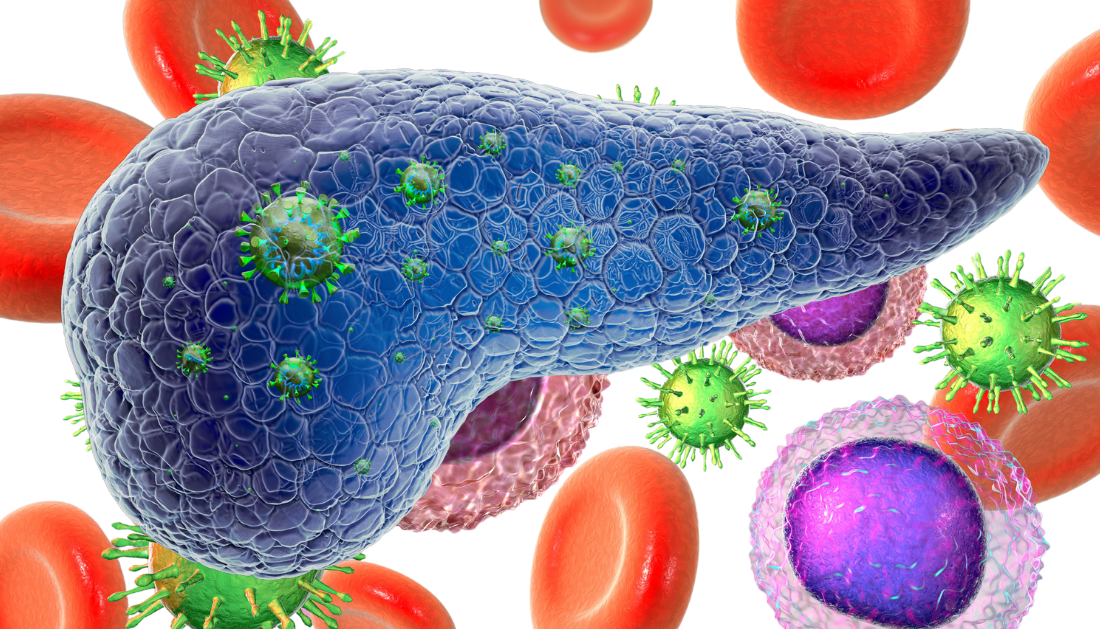

New Immune Map Reveals Key Insights for Pancreatic Cancer Treatment
A newly constructed immune map has revealed distinct immune cell infiltration patterns in pancreatic ductal adenocarcinoma (PDAC), the most lethal form of pancreatic cancer. The study, published in Nature Communications, provides critical insights into immune suppression mechanisms and suggests tailored immunotherapy approaches could improve treatment outcomes.
Understanding the Pancreatic Tumor Microenvironment
PDAC has a five-year survival rate of less than 10%, with only 0.5–1% of patients currently receiving immunotherapy. This low response rate highlights the urgent need for precision medicine approaches targeting immune cell interactions within tumors.
Researchers analyzed single-cell RNA sequencing (scRNA-seq) and immune cell profiling from 12 treatment-naïve patients, identifying two major tumor immune profiles:
- Adaptive-enriched (AE) tumors: high B- and T-cell infiltration, indicating potential responsiveness to immunotherapies.
- Myeloid-enriched (ME) tumors: high regulatory T cells (Tregs) and macrophages, contributing to an immunosuppressive microenvironment.
Key Findings: Mapping the Immune Landscape
AE tumors exhibited:
- Increased CD8+ effector memory T-cells & T follicular helper cells
- Dysfunctional germinal center responses & fewer plasma cells
- Higher IgM-positive B-cells, suggesting immune dysfunction
ME tumors showed:
- High levels of Tregs & gamma-delta T-cells contribute to immune suppression
- Lower CD8+ T-cell infiltration, reducing antitumor immune response
- Elevated macrophage-plasma cell interactions further dampen immune activity
“Understanding the immune composition of PDAC tumors may allow us to tailor treatments based on tumor immune profiles,” researchers noted.
Implications for Personalized Immunotherapy
How can this study impact future treatment?
- Adaptive-enriched tumors may benefit from checkpoint inhibitors targeting dysfunctional lymphoid structures.
- Myeloid-enriched tumors could respond better to therapies aimed at suppressing Treg activity and restoring T-cell function.
- Future clinical trials should evaluate immune infiltration over time to track tumor-immune dynamics and optimize therapy choices.
Conclusion: A Step Toward Precision Oncology
This immune mapping study marks a significant advancement in understanding how immune cells shape pancreatic tumor behavior. By identifying distinct immune profiles, researchers can develop targeted immunotherapies that may improve survival rates in PDAC patients—a crucial step toward precision oncology.
More Information: Sivakumar, S., Jainarayanan, A., Arbe-Barnes, E., et al. (2025) Distinct Immune Cell Infiltration Patterns in Pancreatic Ductal Adenocarcinoma (PDAC) Exhibit Divergent Immune Cell Selection and Immunosuppressive Mechanisms. Nature Communications16(1);1-20. doi:10.1038/s41467-024-55424-2.
more recommended stories
 Nanoplastics in Brain Tissue and Neurological Risk
Nanoplastics in Brain Tissue and Neurological RiskKey Takeaways for HCPs Nanoplastics are.
 AI Predicts Chronic GVHD Risk After Stem Cell Transplant
AI Predicts Chronic GVHD Risk After Stem Cell TransplantKey Takeaways A new AI-driven tool,.
 Red Meat Consumption Linked to Higher Diabetes Odds
Red Meat Consumption Linked to Higher Diabetes OddsKey Takeaways Higher intake of total,.
 Pediatric Crohn’s Disease Microbial Signature Identified
Pediatric Crohn’s Disease Microbial Signature IdentifiedKey Points at a Glance NYU.
 Nanovaccine Design Boosts Immune Attack on HPV Tumors
Nanovaccine Design Boosts Immune Attack on HPV TumorsKey Highlights Reconfiguring peptide orientation significantly.
 High-Fat Diets Cause Damage to Metabolic Health
High-Fat Diets Cause Damage to Metabolic HealthKey Points Takeaways High-fat and ketogenic.
 Acute Ischemic Stroke: New Evidence for Neuroprotection
Acute Ischemic Stroke: New Evidence for NeuroprotectionKey Highlights A Phase III clinical.
 Statins Rarely Cause Side Effects, Large Trials Show
Statins Rarely Cause Side Effects, Large Trials ShowKey Points at a Glance Large.
 Anxiety Reduction and Emotional Support on Social Media
Anxiety Reduction and Emotional Support on Social MediaKey Summary Anxiety commonly begins in.
 Liquid Biopsy Measures Epigenetic Instability in Cancer
Liquid Biopsy Measures Epigenetic Instability in CancerKey Takeaways Johns Hopkins researchers developed.

Leave a Comment